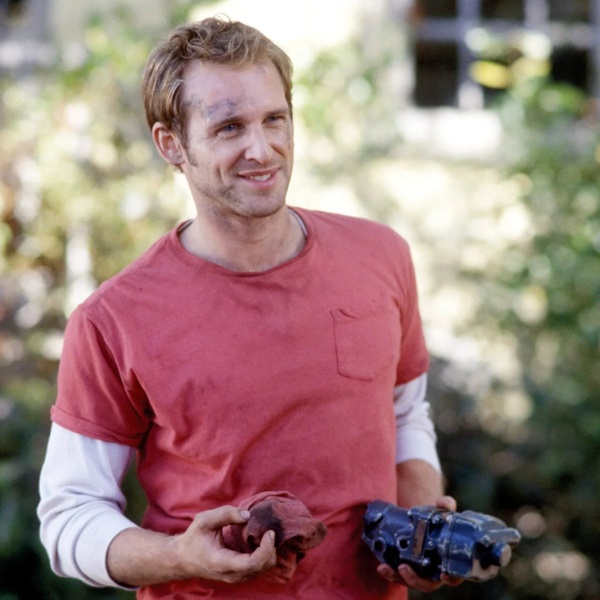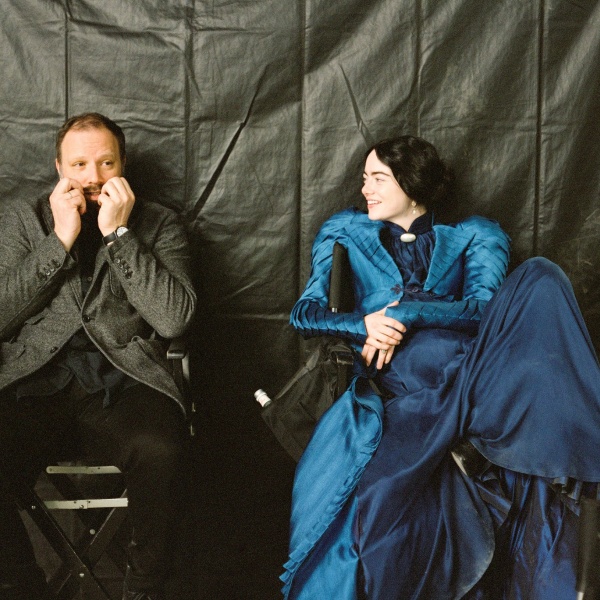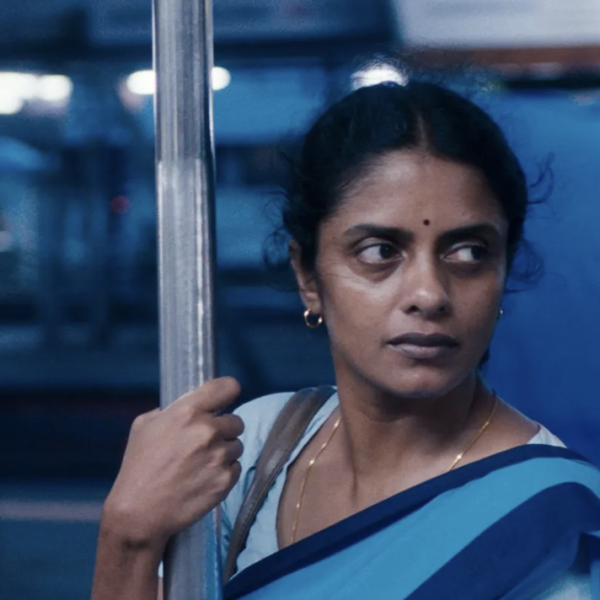Reuniting with screen legend Sylvia Chang after HBO Asia series “Twisted Strings”, writer-director Huang Xi (“Missing Johnny”) levels up with her deeply moving second feature, “Daughter’s Daughter”. Executive-produced by Chang and Hou Hsiao-hsien, the film elegantly explores the blurred lines between selflessness and selfishness, through a tale of modern motherhood that poses complex questions of responsibility when faced with sorrow: who is a mother, especially one who has often questioned her own parenting, to decide what to do with her deceased daughter’s unborn child?
Following a dialogue-free opening with Sylvia Chang on the border of New Jersey, the story starts with a prologue in winter 2018. At a Taipei hospital, Chang’s character Jin Aixia (or “Ai” as she’s called sometimes) is waiting in a hospital corridor while a leak in her room is being resolved. Breaking her leg in an accident, she’s potentially going to need surgery. Present at this awkward setup is her fussing mother, Shen Yan-hua (Alannah Ong), and Emma (Karena Lam), who is Ai’s daughter but not, as we learn, the daughter she actually raised. When studying in New York City as a teenager, Ai became pregnant at 17. Not telling her mother of the pregnancy until it was too late to pursue an abortion, it was deemed best for both Ai and the baby to give the child up for adoption, in this case passing her to friends of Shen who had a restaurant business in the city.
Grandmother Shen would later build a presence in Emma’s life as she grew, staying in New York for long spells, while Emma’s biological father, Johnny, also developed a relationship through his own friendship with the girl’s loving foster parents. Never returning to New York, Ai and Emma have connected to a small extent decades later. The reason the lost daughter is over in Taipei in the first place is to safely bring back Shen, who had been staying in New York and exhibiting serious signs of dementia that can no longer be ignored, especially after also suffering a minor stroke. Currently awaiting her own care after the accident, Ai is processing the idea of becoming a permanent carer for her mother.
Not yet present at the scene is the early-thirties daughter Ai later had in Taiwan, years after giving Emma away: Fan Zuer (Eugenie Liu), who’s been called to the hospital at a time when she’s not been speaking to her mother after a big fight. Zuer has been shaken by only very recently learning that her mother had another daughter at all; not so much objecting to Emma as a person (though she insists she’s not her “sister”), but that her “mum’s other daughter” is only a few years older than Zuer in age and yet has been an unknown quantity all this time. Combined with still lingering hurt over only learning that her parents had officially divorced years after the fact, the irritable young woman is struggling to comprehend the rationale behind what her mother has and hasn’t done as a parent; what she has felt the need to keep secret well into Zuer’s thirties and why.
Zuer is at one point told that, “You look just like what I imagined. That you can easily drive your mum mad. Really piss her off.” Arriving at the hospital with slicked-back, punkish short hair, glitter under her eyes, and wearing a vibrant red leather jacket, Zuer is the picture of someone looking to loudly assert themselves before a stuffy mother, a grandmother who’s probably also on a naughty list for similarly hiding the sibling intel for decades, and the thirty-something “sister” who, from her calm demeanor, projects a sense of fully having her shit together. That attitude of being ready for another fight rapidly depletes once in the company of the older women, even with the immediate mocking of her appearance. The implied wild child is accompanied by her more ‘sensibly’ dressed girlfriend, Zhou Jiayi (Tracy Chou), Zuer’s own secret she’s kept from her family. Meeting Ai for the first time, the more assured Jiayi also shrinks somewhat in the mother’s presence, suggesting that she’s Zuer’s colleague rather than her lover – the winter 2018 setting is perhaps notably a little while before same-sex marriage became legal in Taiwan in May 2019.
This deftly informative, beautifully played prologue is the only time that all the key female characters occupy the same space onscreen. The title card finally drops after a scene of brief bonding between Zuer and Emma in the parking area outside, as the pair demonstrate some shared qualities by flagrantly disregarding a prominent “No Smoking” sign. Huang’s writing and especially the performances of Chang and the magnetic Liu do a lot to quickly make these characters and their complicated relationships incredibly compelling right off the bat. We get just a little bit more of Zuer at the start of a time jump six years ahead, plus a few later flashbacks, setting up the imminent plot catalyst to properly punch one’s gut, even though it’s all been laid out in the film’s logline.
In 2024, Zuer and Jiayi (now long established as a couple) are over in New York, taking part in IVF treatments in the hopes of having a child while still in their thirties. We’ll find out that Ai has been skeptical of Zuer’s desire and readiness to have a kid, but a long-distance conversation suggests that mother and daughter are currently on far better speaking terms than previously glimpsed, despite their capacity to still argue. An emotional Zuer sobs about her worries over the phone, as Ai consoles her while still teasing about her inability to cope under pressure. Ai lives alone now, with Shen staying in a care home; regular dance classes are just one of the ways in which the now sixty-something Ai makes the most of her free time alone.
Roughly a quarter into the runtime comes the game-changer. Receiving a call from Johnny (Winston Chao), Ai learns that Zuer and Jiayi have been in a car accident. Upon her arrival at the hospital in New York, Johnny informs her that both women have died. Amidst dealing with the emotional and logistical fallout of her daughter’s death (including sorting her and Jiayi’s belongings in the airbnb where they had been staying), Ai also learns from the IVF agency that Zuer had a successfully viable, healthy embryo, for which Ai is now the legal guardian. With eight months left for the embryo-storage contract Zuer had signed, Ai has four options to assess: keep freezing the embryo, donate it to a couple, find a surrogate, or termination.
As Ai processes the pain of losing her daughter (the only one of her two that she wanted to raise or know), she’s confronted with a choice between her life and that of an embryo representing the wants and work of her child so suddenly and cruelly taken away. Now that Zuer has died, Ai’s life living alone may not be happy like it generally has been for a while (despite Shen’s dementia), but it would be hers to do as she pleases without another huge responsibility to consider. As relates to Ai’s own concerns that Zuer couldn’t handle the pressure, raising a child involves pragmatic calculation of time, funds, health (and energy!), and, ideally, a love that is genuine; not a situation where caring for them is a burden forced upon you.
That’s a difficult enough calculation as a younger person, yet alone if you are a sixty-something woman who was mentally preparing to become a grandmother (and barely believing that would happen), who still has her own living elderly mother to observe carefully, even with professional assistance. Ai even points out to one person that she could easily fall foul of the reaper herself during the first ten years of the potential child’s life. How fair is it to bring a kid into the world when you know that time is not on your side to raise them to adulthood? Especially if you have always had doubts about your own maternal instincts.
Away from death, the prospect of seeing Emma while in New York also looms over proceedings, and then Karena Lam returns to the film to start hanging around like a specter. Accompanying Ai on some of her New York errands and staying with her at the airbnb some nights, Emma is confrontational in select scenes, about both their relationship and Ai possibly not taking the embryo to birth, while near-silent in others, off to the side of the frame to simply observe. There is eventually a clearly established reason why Emma is navigating spaces with Ai like she’s Bruce Willis following Haley Joel Osment in “The Sixth Sense,” and – major spoiler for “The Sixth Sense” if you somehow don’t know – it’s thankfully not because she’s also actually dead. The real reason is one of Huang’s riskier writing tricks that could potentially have fallen flat and undermined the emotional heft of her drama, but it does work for this story ultimately being one of reconciliation with oneself.
While the odd line rings a bit too on the nose (“This is New York. Always keep your baggage with you”) and some narrative echoes set up between the generations of women border on being too tidy, Huang’s patient storytelling, the rich subtleties of her stars’ performances, and the thorny nature of her central dilemma allow “Daughter’s Daughter” to tap into universal issues of regret, acceptance and hope with considerable nuance, grace and beautiful little details. You will believe that both a cookie and a giant stuffed penguin can make you weep.
Grade: B+
“Daughter’s Daughter” premiered at the 2024 Toronto International Film Festival. It is currently seeking U.S. distribution.
Want to stay up to date on IndieWire’s film reviews and critical thoughts? Subscribe here to our newly launched newsletter, In Review by David Ehrlich, in which our Chief Film Critic and Head Reviews Editor rounds up the best reviews, streaming picks, and offers some new musings, all only available to subscribers.






